Let’s talk about one of the biggest challenges we face as legal professionals: managing contract risks. If you’re like most legal teams, you’re likely dealing with a growing volume of increasingly complex agreements. The good news? AI is transforming how we approach contract management, offering faster insights and better risk management. In fact, Gartner predicts that by 2027, the global legal tech market will double, largely thanks to Generative AI.
With that in mind, here are five practical ways AI-powered clause management can help keep your contracts secure and your risks in check. Whether you’ve been in the game for years or are new to contract management, these insights can help you streamline your work.
1. Automated Risk Identification
One of AI’s most significant advantages in contract management is its ability to quickly scan and analyze vast volumes of contracts, automatically identifying high-risk clauses. This capability is particularly valuable when dealing with unstructured data, which traditional systems often struggle to process effectively.
AI-powered systems can flag:
- Ambiguous language that could lead to disputes
- Non-compliant terms that may violate regulations
- Risky clauses such as broad indemnities, uncapped liabilities, or poorly defined force majeure conditions
By automating this process, legal teams can focus their attention on addressing identified risks rather than spending countless hours manually reviewing documents.
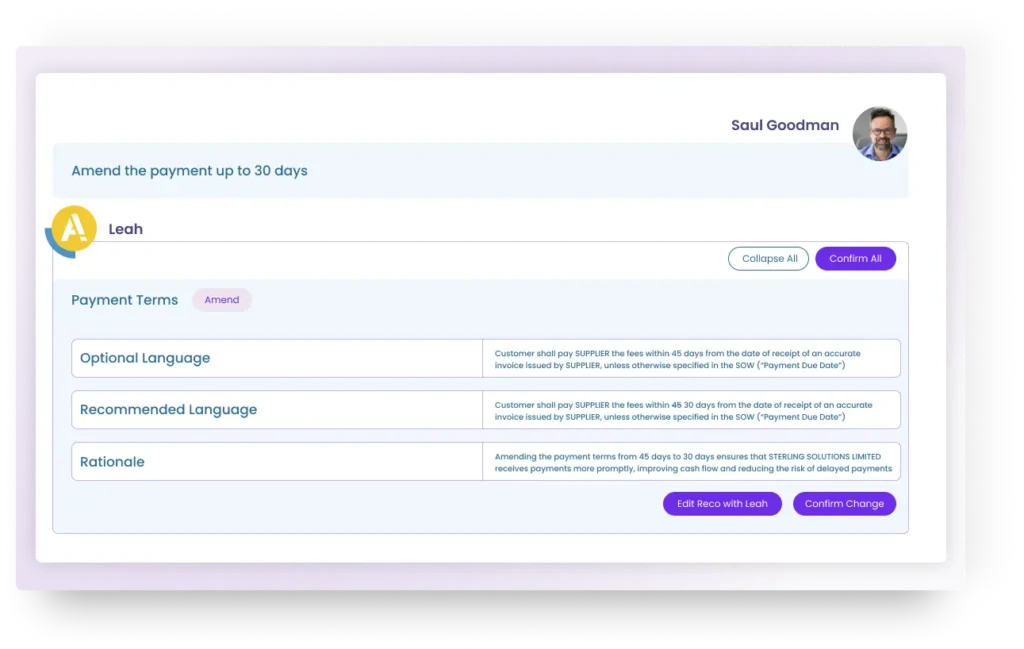
2. Clause Optimization for Risk Mitigation
AI doesn’t just identify risks; it can also help mitigate them. Advanced systems can suggest alternative wording or clauses to strengthen contract enforceability and reduce the risk of disputes. A system can take a “golden standard” contract—essentially, an ideal or benchmark version of an agreement—and use it to create a playbook or clause library.
This playbook serves as a reference point, defining the preferred language, key terms, and acceptable variations for specific clauses. When new contracts are processed, the system can automatically compare them against this playbook, identifying deviations and flagging areas that might need revision. This approach ensures contract language consistency and helps teams adhere to preferred standards.
AI-powered systems in contract lifecycle management (CLM) can also bridge the gap between existing contract terms and new regulatory requirements, like those emerging from regulations such as the Digital Operational Resilience Act (DORA). For example, DORA requires organizations to reassess contracts with ICT service providers to address risks like ICT concentration. AI tools can automatically evaluate contract terms against these evolving standards, identify gaps, and suggest updates.
Beyond comparisons, AI can leverage precedent-based clause recommendations. This means that the system learns from past successful agreements—those that reached signature faster or contributed to a positive relationship between the parties. By analyzing these historical contracts, the AI can suggest clauses that have proven effective in similar scenarios. For instance, if a particular limitation of liability clause led to smoother negotiations or a more balanced outcome in prior deals, AI might recommend this clause as the best option for a new contract.
This capability allows businesses to refine their contract strategy continually, using insights from previous deals to craft clauses that not only protect against risks but also optimize the negotiation process. By incorporating proven language and adapting it for new agreements, organizations can streamline the path to signature and foster stronger, more collaborative relationships with counterparties. This blend of playbook-based comparisons, precedent-driven recommendations, and regulatory alignment makes AI a proactive partner in contract management, offering insights that align legal drafting with strategic goals.
Tangible Results Include:
- Improving clause clarity and structure to minimize ambiguity
- Suggesting alternative wording to address new regulatory standards
- Recommending industry-standard language for common provisions
- Enabling “surgical redlining” rather than wholesale rewrites, preserving negotiated terms while addressing specific risks
- Providing real-time compliance alerts, helping teams stay ahead of regulatory changes
By optimizing clauses and ensuring regulatory alignment, organizations can create more robust contracts that better protect their interests and reduce the likelihood of costly legal disputes.
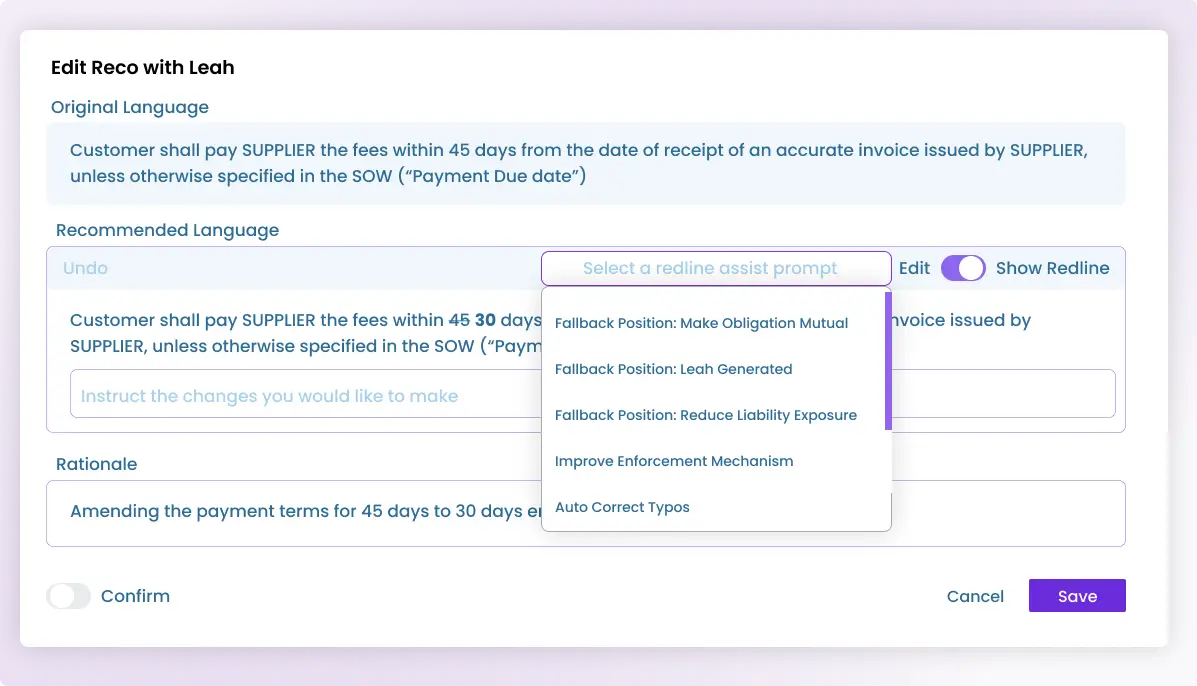
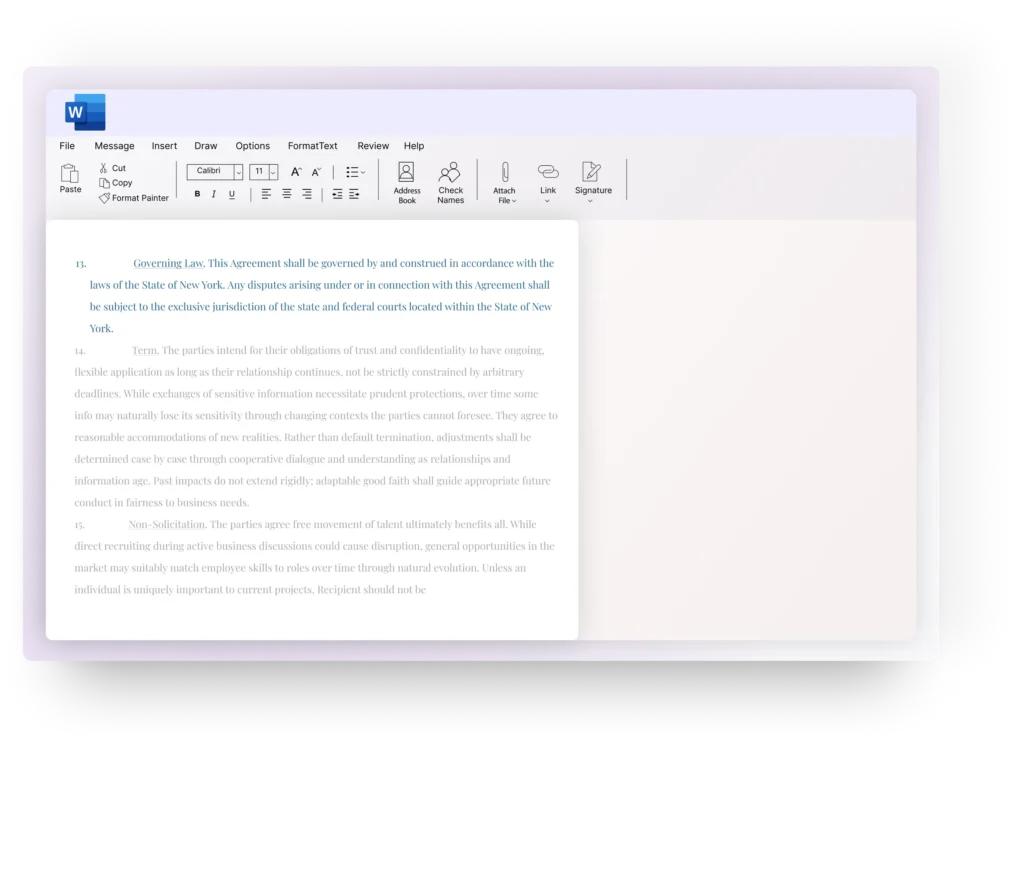
3. Enhanced Data Security in Contracts
With data privacy and information security laws and regulations like GDPR and DORA (Digital Operational Resilience Act), ensuring robust data protection clauses in contracts is critical. AI-driven systems can play a crucial role in this area by:
- Ensuring data protection clauses meet current privacy standards and align with new regulatory requirements
- Identifying and flagging missing or outdated security provisions, including those related to ICT risks
- Suggesting updates to align with evolving data protection and operational resilience requirements
This capability is especially valuable for organizations handling sensitive data or operating in highly regulated industries. AI tools help maintain a centralized view of contract terms, ensuring consistent application of regulations across agreements and automating due diligence. By monitoring contracts and flagging deviations from new standards, AI allows for swift adjustments, reducing manual reviews and minimizing errors.
Beyond that, an active trust and safety focus can yield dividends for business as many customers—and government regulators—will appreciate and prefer an organization that promotes and ensures security, privacy, and safety.
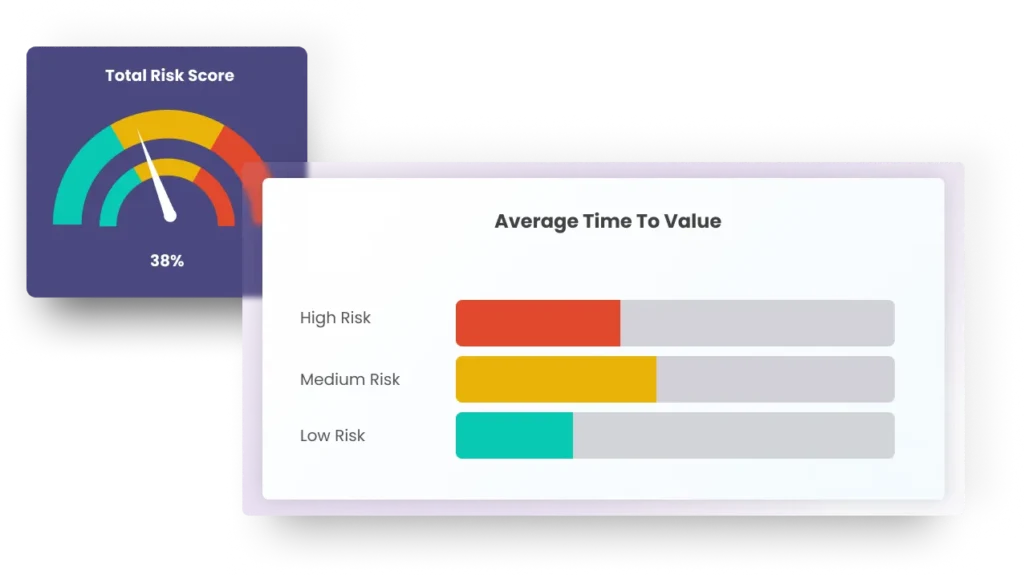
4. Predictive Risk Analysis, Decision Support, and Strategic Risk Mitigation
AI in contract management offers powerful predictive capabilities and strategic insights. By analyzing historical data and contract performance, AI systems can:
- Predict potential risks, provide decision support for negotiations, and offer proactive risk prevention
- Identify trends and flag potential issues early, helping legal teams ensure compliance with regulatory expectations and contractual obligations
- Standardize key terms like data usage across contracts and create clear audit trails, simplifying compliance and improving alignment with organizational policies
This combined approach empowers organizations to make informed decisions, avoid issues before they arise, and maintain a strategic view of contract risk management.
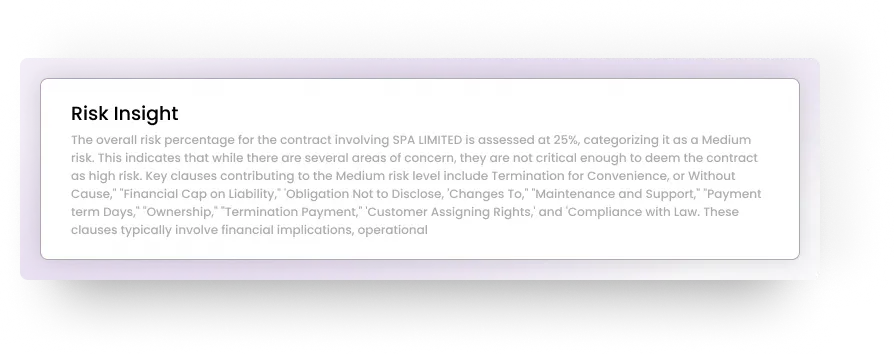
5. Compliance Insights and Alerts
Regulatory compliance is an ongoing challenge, with laws and standards frequently changing. While AI-driven clause management may not currently provide real-time monitoring, it can offer valuable compliance insights by allowing legal teams to align contract terms with the latest regulatory standards. Through periodic updates to the regulatory knowledge base, teams can stay informed on compliance needs, minimizing risks before they escalate.
Expected Benefits:
- Cross-reference contract terms with the latest available legal standards to ensure alignment
- Provide alerts when contract terms may need review due to regulatory changes
- Recommend adjustments to contracts based on evolving compliance requirements, helping to protect against regulatory risks over time
With these proactive compliance insights, AI-powered clause management helps organizations stay prepared and avoid potential fines, safeguarding their reputation in a complex regulatory landscape.
Embracing the Future of Contract Management with AI
Contract management is the backbone of how businesses work together. AI in contract management is freeing up legal teams to do what they do best: build relationships and make smart calls on complex and strategic issues.
Let’s face it: keeping up with changing regulations and managing business relationships is getting more complicated by the day. That’s why having AI tools in your corner isn’t just nice to have anymore – it’s becoming as essential.
Ready to see how these tools could make your workday easier? ContractPodAi can show you the ropes and help keep your contracts running smoothly, so you can focus on growing your business with confidence.


